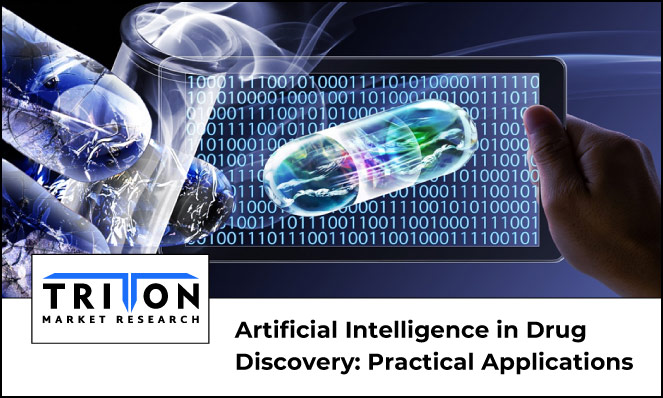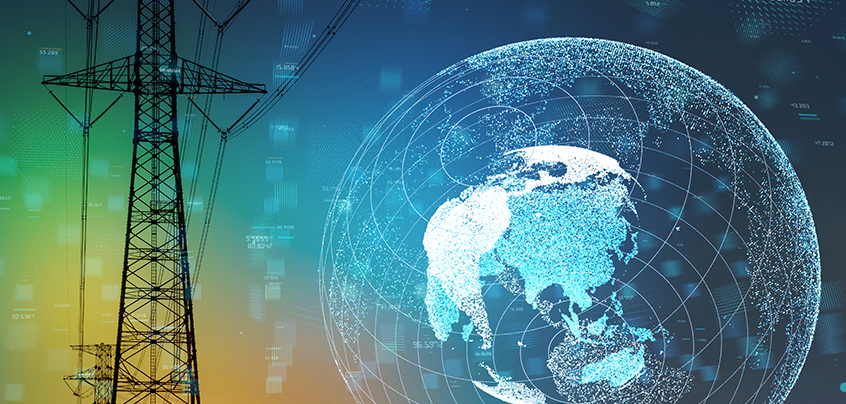



03, July 2024

As the pharmaceutical industry grapples with escalating research costs artificial intelligence emerges as a transformative force that eases out drug discovery. According to the National Institutes of Health, introducing a new medicine to the market costs over $1 billion, taking up to 14 years. However, drug development is a complex process, from conceptualization to implementation, with many potential points of failure. For instance, on average, a 12-month clinical trial with 2,000 patients can produce up to 3 million data points. With data handled at least six times, there are approximately 10 million opportunities for error per trial.
In this challenging scenario, artificial intelligence in drug discovery emerges as a promising solution by analyzing and synthesizing vast amounts of information from scientific research, publications, and other data sources. This eventually leads to reducing errors and accelerating the process of new drug development.
Let us explore the transformative potential of AI in drug discovery, emphasizing its utility, real-world applications, and future prospects.
Artificial Intelligence (AI) involves simulating human intelligence in machines designed to think, learn, and make decisions similar to humans. In drug discovery, AI significantly enhances the accuracy of predictions related to drug efficacy and safety while also improving the precision and personalization of medicine.
The impact of AI on drug discovery is already substantial. For instance, the FDA has reported a notable surge in drug and biologic application submissions that incorporate AI/ML components. In 2021 alone, there were over 100 such submissions, demonstrating the pharmaceutical industry’s growing reliance on AI technologies.
Machine Learning (ML) involves algorithms that improve through experience, enabling the identification of patterns in data that can predict drug efficacy. Besides, it helps analyze complex datasets to find correlations that might not be evident through traditional methods.
In this regard, Dr. Reddy’s Laboratories’ subsidiary Aurigene introduced an AI and ML-assisted drug discovery platform in April 2024 that uses an iterative ML process for logical and effective chemical design, accelerating projects from hit identification to candidate nomination.
Deep Learning, a specialized subset of ML, employs neural networks to model intricate biological processes. It excels in predicting molecular interactions, which is crucial for understanding how potential drugs will behave in the human body.
Natural Language Processing (NLP) enables the analysis of vast amounts of scientific literature and clinical data, helping researchers identify potential drug candidates by extracting relevant information from unstructured text sources.
Generative AI, a subset of artificial intelligence focused on creating new data instances, is gaining prominence in drug discovery. This technology generates novel molecular structures with specific characteristics, which can then be tested for potential therapeutic uses. By creating new molecules that meet precise criteria, generative AI models can significantly accelerate the initial phases of drug discovery.
In essence, generative AI models predict the chemical properties and biological activities of newly created molecules, enabling researchers to focus on the most promising candidates.
Harnessing the potential of generative AI, in March 2024, NVIDIA Healthcare introduced a new catalog of NVIDIA NIM and GPU-Accelerated microservices to advance drug discovery, digital health, and MedTech.
Following NVIDIA, Cognizant also announced that it is advancing its application of Gen AI using the NVIDIA BioNeMo platform, addressing various challenges in drug discovery for its pharmaceutical clients.
Google Deepmind, in May 2024, unveiled AlphaFold 3 to accurately predict the structure of proteins, RNA, DNA, ligands, etc., designing drugs and targeting diseases more effectively.
The potential for artificial intelligence in drug discovery and development is vast and exciting. Emerging trends indicate a growing integration of AI with technologies like quantum computing and advanced robotics, which promises to further accelerate the AI-driven drug discovery process. The impact of AI on the healthcare and pharmaceutical industry is profound, with the potential to revolutionize the treatment of diseases, leading to better healthcare outcomes. AI-designed drugs, customized to individual genetic profiles, exemplify the growing scope of personalized treatments, enhancing the effectiveness of medical interventions.
By making drug discovery faster, cheaper, and more precise, companies using AI for drug discovery can address urgent healthcare needs more efficiently. In conclusion, harnessing AI’s full potential will pilot a new era of medical innovation, fundamentally changing the operating standards of the pharmaceutical industry.
Image Source: bit.ly/3xKL96y

Prevalent cases of terrorist attacks in today’s world is increasing the need for severe standards of security for public safety, and the global market for biometric technology scrupulously accommoda..
Prevalent cases of terrorist attacks in today’s world is increasing the need for..